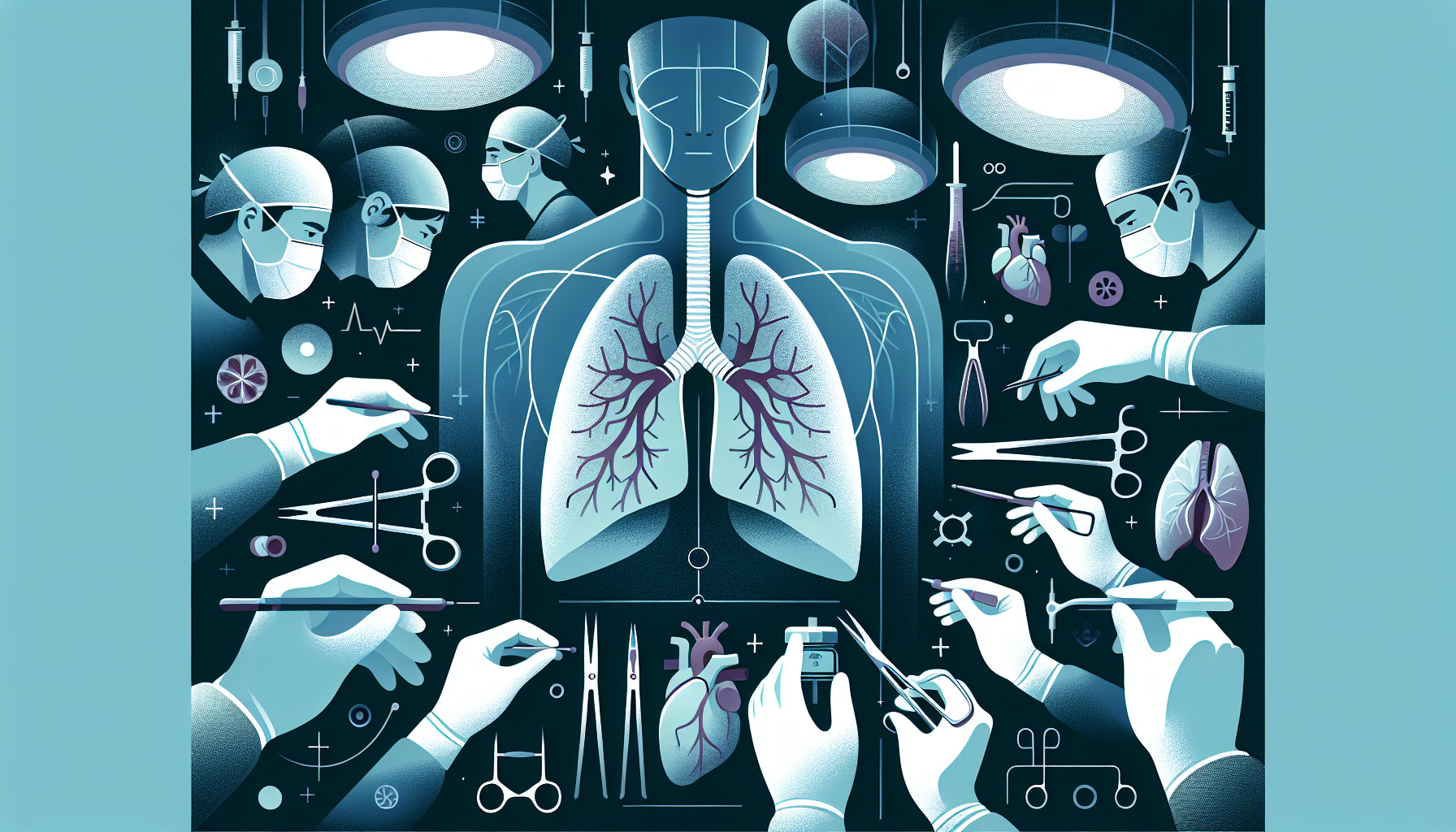Our Summary
This research paper discusses the psychological stress that people often experience after undergoing an organ transplant, specifically a lung transplant. This stress can lead to mental health issues. While there has been a lot of research into psychological interventions before a transplant, there’s not as much on interventions after the procedure. However, maintaining mental health after a transplant is crucial as it can affect the medical outcome. The paper emphasizes the importance of psychological support after a transplant and provides suggestions on what areas to focus on during recovery. It also introduces a new type of psychological rehabilitation for those who have had a transplant.
FAQs
- What kind of psychological stress can people experience after a lung transplant?
- Why is maintaining mental health crucial after a lung transplant?
- What does the research paper suggest in terms of psychological support and rehabilitation after a lung transplant?
Doctor’s Tip
One helpful tip a doctor might tell a patient about lung transplant is to prioritize their mental health and seek psychological support after the procedure. It is important to address any feelings of stress, anxiety, or depression that may arise during the recovery process. Engaging in therapy, support groups, or other forms of psychological rehabilitation can help improve overall well-being and potentially improve medical outcomes. It is essential for patients to communicate openly with their healthcare team about any emotional struggles they may be facing in order to receive the appropriate support and resources.
Suitable For
Patients who are typically recommended for a lung transplant are those who have end-stage lung disease and have exhausted all other treatment options. This includes individuals with conditions such as chronic obstructive pulmonary disease (COPD), idiopathic pulmonary fibrosis, cystic fibrosis, and pulmonary hypertension. These patients often have severe difficulty breathing and their quality of life is significantly impacted.
In addition, candidates for lung transplants are typically younger individuals who are otherwise healthy aside from their lung condition. They must also be able to withstand the rigors of the transplant surgery and the post-operative recovery process. Patients who have other significant medical conditions that would complicate the transplant process may not be considered suitable candidates.
It is important for patients undergoing a lung transplant to have a strong support system in place, including both medical and psychological support. This is because the transplant process can be emotionally challenging and patients may experience anxiety, depression, and other mental health issues both before and after the surgery. Having a strong support system can help patients cope with these challenges and improve their overall outcomes post-transplant.
Timeline
Before Lung Transplant:
- Diagnosis of end-stage lung disease and referral for transplant evaluation
- Evaluation process including medical tests, psychological assessments, and discussions with transplant team
- Waiting for a suitable donor match, which can be a stressful and uncertain time
- Pre-transplant education and preparation for surgery and recovery
After Lung Transplant:
- Surgery and immediate post-operative care in the hospital
- Recovery period in the hospital, which can include complications and setbacks
- Transition to outpatient care and rehabilitation, including physical therapy and medication management
- Adjusting to life with a new organ, including managing medications and monitoring for signs of rejection
- Psychological challenges such as anxiety, depression, and post-traumatic stress disorder related to the transplant experience
- Long-term follow-up care to monitor the health of the transplanted lung and overall well-being
Overall, the journey before and after a lung transplant can be physically and emotionally challenging. It is important for patients to have a strong support system in place and access to psychological resources to help them cope with the stress and changes that come with the transplant process.
What to Ask Your Doctor
Some questions a patient should ask their doctor about lung transplant include:
- What is the success rate of lung transplants at this hospital or with this specific medical team?
- What are the potential risks and complications associated with a lung transplant?
- How long is the recovery process expected to take?
- What kind of follow-up care and monitoring will be needed after the transplant?
- Are there any lifestyle changes that need to be made post-transplant?
- What kind of support services are available for mental health and emotional well-being after the transplant?
- How can I best prepare myself mentally and emotionally for the transplant surgery and recovery?
- Are there any specific signs or symptoms I should watch out for that may indicate rejection or other complications?
- What are the long-term outcomes and potential challenges I may face after a lung transplant?
- Are there any clinical trials or new treatments that I may be eligible for as a lung transplant recipient?
Reference
Authors: Patel A, Chernyak Y. Journal: Prog Transplant. 2020 Jun;30(2):140-143. doi: 10.1177/1526924820913510. Epub 2020 Apr 2. PMID: 32238032
